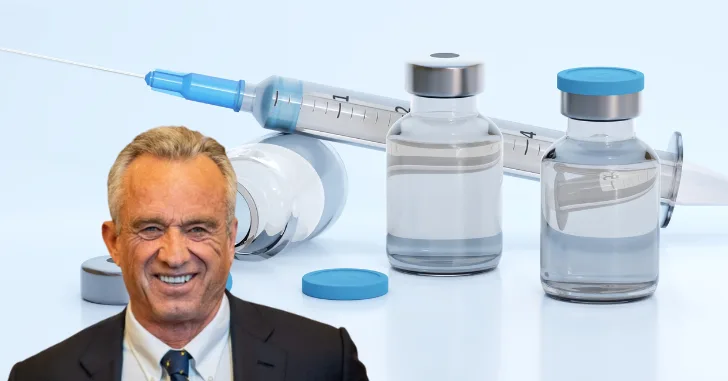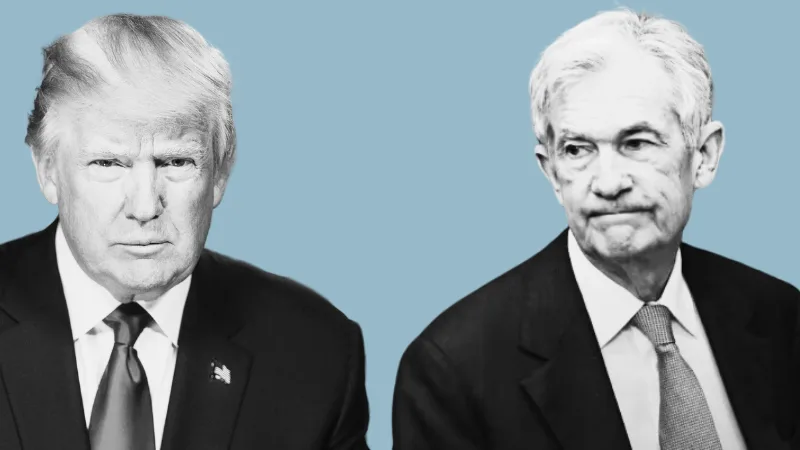On June 9, 2025, Robert F. Kennedy Jr., the new Health and Human Services (HHS) boss and a longtime vaccine skeptic, dropped a shocker: he’s kicking all 17 members of the CDC’s Advisory Committee on Immunization Practices (ACIP) to the curb. This crew advises on U.S. vaccine policies—think COVID shots, flu jabs, and measles vaccines—so their recommendations move markets. With stocks like Pfizer and Moderna already jittery, Kennedy’s move sent ripples through Wall Street, with biotech ETFs dipping 1.5%. As a retail investor, you’re probably wondering: what’s this mean for your portfolio? Should you buy, sell, or hold vaccine stocks? Let’s break it down, from the headlines to the hard numbers, and figure out your next play.
What Just Went Down?
Kennedy, tapped by President Trump and greenlit by the Senate in February 2025, announced the ACIP overhaul in a Wall Street Journal op-ed. His reasoning? “A clean sweep is needed to re-establish public confidence in vaccine science.” He called the panel a “rubber stamp” for vaccines, claiming they’re cozy with drug companies. The ACIP—17 doctors, epidemiologists, and health experts—guides what vaccines kids and adults get, influencing billions in pharma sales. Now, they’re all out, with Kennedy picking new faces for a big June 25 meeting on vaccines for flu, COVID, RSV, and more.
This isn’t Kennedy’s first jab at vaccines. He’s already nixed CDC advice pushing COVID shots for healthy kids and pregnant women, as he bragged in a quick X video. HHS says the old panel, mostly Biden picks from 2024, had to go to let Trump’s team take charge. But with measles cases spiking and 241 flu-related child deaths since fall 2024 (per NBC News), the timing’s got folks nervous. So, what’s driving this, and how’s it hitting your investments?
Why’s Kennedy Doing This?
Kennedy’s been loud about vaccines for years, saying they’re not safe enough and that Big Pharma pulls the strings. He claims ACIP members have conflicts of interest, though CNBC points out they’re vetted with strict disclosure rules—no red flags lately. Dorit Reiss, a public health law prof at UC San Francisco, told Reuters this feels more like politics than science. X posts from February, like @JackPosobiec’s, hinted Kennedy was gunning for “industry-tied” advisers, so this was no spur-of-the-moment call.
The move ties into Trump’s “Restoring Gold Standard Science” order, pushing for transparency. But firing the whole panel? That’s got experts like Paul Offit, a former ACIP member, fuming. He told ABC News, “They should be given an award, not fired.” With a crucial ACIP vote looming, Kennedy’s new picks could reshape vaccine policy—and pharma profits—fast.
What’s the Vibe Out There?
The backlash is real. Dr. Mandy Cohen, ex-CDC chief, said on ABC News, “Secretary Kennedy’s unprecedented action spreads confusion and casts doubt on transparent public health processes that protect Americans.” The American Medical Association’s Dr. Bruce Scott warned, “Today’s action to remove the 17 sitting members of ACIP undermines that trust and upends a transparent process that has saved countless lives.” With vaccination rates already slipping, experts like Michael Osterholm at the University of Minnesota are spooked, saying, “It scares me to think of what’s ahead.”
But not everyone’s mad. Some X users, like @sheislaurenlee calling it “the END of corporate capture.” Others see it as a win for transparency. Retail investors on platforms like Reddit’s r/stocks are split—some smell a dip to buy Moderna, others worry vaccine sales are toast. So, let’s get to the money: what’s this mean for your portfolio?
How’s This Hitting Your Wallet?
Kennedy’s CDC shake-up is shaking up vaccine stocks and the broader healthcare market. Here’s what retail investors need to know, with hard numbers to back it up:
Vaccine Stocks Under Pressure:
The ACIP’s advice drives vaccine sales, and Kennedy’s moves could mean fewer recommendations. Pfizer made $1.6 billion from pneumococcal vaccines in 2024, while Moderna banked $1.9 billion from COVID shots. If the new panel pulls back on flu or COVID vaccines, those numbers could tank. Moderna’s stock (MRNA) slid 2% on June 9, per Seeking Alpha, and Pfizer (PFE) wobbled 1.3%. Biotech ETFs like XBI dropped 1.5%, showing sector-wide jitters. If you’re holding these, brace for volatility until the June 25 ACIP meeting clears things up.
Regulatory Headaches:
Kennedy’s HHS is digging into Big Pharma’s influence, which could mean tougher rules or slower vaccine approvals. That’s bad news for companies leaning hard on vaccines, like Moderna (80% of revenue from COVID shots). But diversified players like Merck (MRK), with $6 billion in oncology sales, might shrug it off. Check your holdings’ vaccine exposure—use Yahoo Finance to see revenue breakdowns.
Public Trust and Outbreaks:
NBC News reports falling vaccination rates, and measles is back in a big way. If Kennedy’s panel spooks more folks away from vaccines, hospital stocks like HCA Healthcare (HCA) could take a hit from outbreak-related costs. On the flip side, diagnostic firms like Quest Diagnostics (DGX) might see a bump if testing demand spikes. Look at your healthcare ETFs for exposure to these swings.
Market Metrics:
- Pfizer: P/E 19, dividend yield 4.2%, vaccine revenue 15% of $58 billion total (2024).
- Moderna: P/E 45, no dividend, vaccine revenue 80% of $6.8 billion.
- Merck: P/E 21, dividend yield 2.4%, vaccine revenue 10% of $60 billion.
Moderna’s high P/E screams risk if vaccine sales falter, while Pfizer’s dividend cushions dips. Merck’s diversity makes it a safer bet. Compare these to the S&P 500’s P/E of 23 for context.
Hidden Gems:
Kennedy’s push for “unbiased science” might open doors for smaller biotechs like Novavax (NVAX), which makes protein-based vaccines. If the new ACIP favors alternatives, NVAX (up 3% on June 9) could be a speculative buy. But it’s risky—Novavax’s $900 million revenue is tiny next to Pfizer’s.
What Should You Do?
Hold Tight: Don’t dump Moderna or Pfizer yet. Their 2024 earnings ($2.3B for PFE, $600M for MRNA) show resilience, and dividends (PFE’s 4.2%) soften the blow. Wait for the new ACIP lineup and June 25 votes.
Spread Your Bets: If you’re heavy on vaccines, add diversified names like Merck or Johnson & Johnson (JNJ, 3% dividend yield). Use Robinhood or Fidelity to rebalance.
Q3 Earnings: Pfizer and Moderna report in late July. Look for vaccine revenue drops or guidance cuts, which could signal bigger trouble.
Buy the Dip?: If Moderna falls below $50 (from $62 on June 9), it might be a steal for risk-takers, given its mRNA pipeline. But set a stop-loss—volatility’s coming.
What’s Next?
Kennedy’s gamble could reshape vaccine policy or backfire if outbreaks worsen. The new ACIP’s picks, due soon, will set the tone. If they’re science-driven, stocks might stabilize. If they lean anti-vaccine, expect more dips. By fall, Trump’s health policies could clarify the path. For now, keep your portfolio balanced and your eyes on X for real-time vibes.





